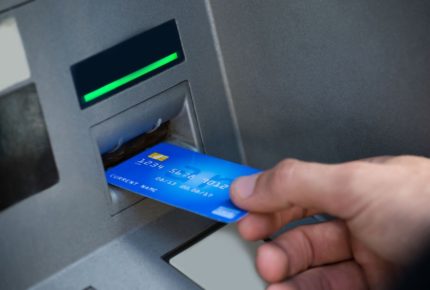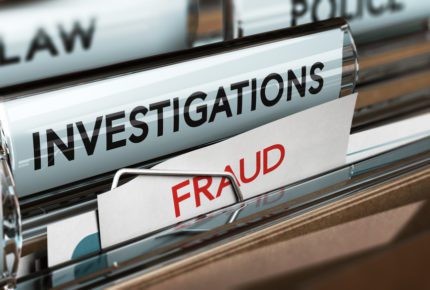

Credit card fraud is prevalent in the UK, with recent statistics from the UK’s National Fraud Authority stating that credit card fraud rates have been steadily rising, with over 200,000 cases reported in the past year alone. Facing allegations of credit card fraud can be an overwhelming and distressing experience, particularly if it is your initial interaction with the legal system. If you find yourself grappling with the uncertainty of the legal proceedings ahead, you are not alone. In this article, we will explore the offence of credit card fraud, shedding light on its various aspects, offering some examples of what could constitute credit card fraud, and addressing the most common queries individuals have when confronted with such charges.
What is the offence of credit card fraud?
Credit card fraud encompasses a range of deceptive practices where individuals or groups intentionally provide false or deceptive information to carry out fraudulent credit card transactions. These actions most often fall within the legal framework established by the Fraud Act 2006.
In general, to secure a conviction for credit card fraud, the prosecution must establish the following:
- Intent – it is essential to demonstrate that the accused had the intention to deceive or defraud the credit card issuer or other parties involved. Genuine errors or mistakes in credit card transactions are typically not considered fraud.
- False representation – the prosecution needs to prove that false or misleading information was knowingly provided. This can include the use of counterfeit credit cards, falsified identification, or misrepresented financial details during a transaction.
- Materiality – it must be shown that the false information was significant enough to influence the decision of the credit card issuer or other relevant parties involved in the transaction.
- Causation – there should be a clear connection between the false information provided and the decision to authorise the credit card transaction. In essence, the issuer or other parties must have relied on the false information in processing the transaction.
- Benefit – the prosecution may also need to demonstrate that the accused gained a financial advantage or benefit as a result of the fraudulent activity. This could involve unauthorised purchases, obtaining goods or services fraudulently, or benefiting from credit card rewards that would not have been accessible through honest means.
If you are facing allegations of credit card fraud, it is imperative to seek the assistance of specialist legal representation promptly. Having an expert by your side will help you navigate the intricacies of your case and ensure that your rights are protected throughout the legal process.
What are some examples of credit card fraud?
Examples of this offence include:
- Identity theft – someone steals your personal information and opens a credit card in your name. They then make fraudulent charges on the card.
- Skimming – criminals use a skimming device to steal credit card information when you make a purchase at a store or restaurant. They then create counterfeit cards to make purchases.
- Phishing – fraudsters send fake emails or texts pretending to be from a reputable company, trying to get you to reveal credit card info.
- Fake merchant accounts – scammers set up sham online retailers and process stolen cards or launder money through them.
- Card not present fraud – someone makes purchases online, over the phone or by mail order using stolen credit card numbers.
- Bust out fraud – someone opens a credit card with no intention of paying it back, charging up as much as they can before the card is cut off.
- Transaction laundering – an unscrupulous merchant processes credit card payments on behalf of a shady business to disguise the true nature of their charges.
- Friendly fraud – a cardholder makes a legitimate purchase but then falsely claims it was fraudulent in order to get their money back.
What happens if you are suspected of committing mortgage fraud in the UK?
If you find yourself under suspicion of credit card fraud, here is a general outline of what you can expect to happen:
- Investigation – typically, suspicions of credit card fraud will trigger an investigation led by the police or financial regulatory bodies. This inquiry may encompass interviews, scrutiny of documents, and inquiries into your financial records, credit card transactions, and other pertinent information.
- Arrest and detention – in cases where substantial evidence supports the suspicion of credit card fraud and authorities believe there is a risk of flight or obstruction of the investigation, you may face arrest and temporary detention while further inquiries are conducted. Not all suspected cases result in immediate arrest – the outcome depends on the specific circumstances and available evidence.
- Interviews – throughout the investigation, you may be requested to participate in interviews or respond to questions related to the alleged credit card fraud. Remember that you have the right to remain silent and consult with a solicitor during any questioning.
- Charges – if the investigation yields enough evidence to substantiate the allegations of credit card fraud, you may be formally charged with an offence. These charges will specify the particulars of the alleged fraud and the specific laws you are accused of violating, most likely falling under the Fraud Act 2006.
- Court proceedings – once charged, you will be required to appear in court. Credit card fraud cases are typically heard in Crown Court due to their gravity. During these court proceedings, the prosecution will present evidence, and you or your solicitor will have the opportunity to present your defence.
- Penalties – in the event of a guilty verdict for credit card fraud, you may face penalties that could include fines, imprisonment, or a combination of both. The severity of these penalties hinges on the unique circumstances of your case, the extent of the fraud committed, and the applicable laws. Additionally, you may be required to reimburse any financial gains acquired through credit card fraud, which may encompass repaying the credit card issuer and compensating any victims for their losses.
If you suspect you are under investigation or have been charged with credit card fraud, consult with an experienced credit card fraud solicitor as soon as possible.
What is the sentence for credit card fraud in the UK?
Generally speaking, credit card fraud is prosecuted under the Fraud Act 2006 as ‘fraud by false representation’ and is punishable by up to 10 years in prison, if tried in the Crown Court.
That said, sentences do vary widely based on the details of the case, the amount stolen, and whether the defendant pleads guilty or not. Much depends on whether the judge considers the fraud as opportunistic or part of an organised criminal operation. For large scale or professional credit card fraud rings, sentences of 5-8 years of imprisonment are common.
For instances of identity theft or card-not-present fraud using stolen details, defendants often receive 1-3 years imprisonment, if they are ultimately convicted. Misrepresenting identity to obtain credit or repeatedly defaulting on debts of thousands of pounds could warrant up to 5 years in prison.
Are there any defences to credit card fraud?
Potential defences include:
- Claim of right – if the defendant believed they were legally entitled to use the credit card or make the purchases, they may argue they lacked requisite intent to commit fraud.
- Duress – the defendant could claim they were forced to commit fraud under threat of violence or coercion. The duress must be immediate and credible.
- Intoxication – being voluntarily intoxicated is not a defence, but if the defendant was involuntarily intoxicated to the point of negating criminal intent, it may succeed.
- Identity theft – if the defendant’s identity was stolen and fraudulent purchases made in their name, they would have a defence if there is evidence identity theft occurred and proper precautions were taken.
- Authentic transaction dispute – if the purchases are proven to be valid transactions that were simply disputed later on, there is no intent to commit fraud.
As ever, the possibility of a successful defence rests on the specific circumstances and strength of the evidence. Given the paper trails and technology involved, credit card fraud can be tough to defend, but with an experienced credit card fraud solicitor, you stand a better chance.
Will I go to prison if it is my first time committing credit card fraud?
Whether you go to prison for committing credit card fraud as a first-time offender depends on several factors, including the details of the case and the judge’s discretion. Credit card fraud is undoubtedly serious, and judges are not necessarily willing to let people off with a light punishment given how much fraud undermines the financial system.
That said, if you are remorseful, have taken actions to right the wrong (for example, paid back monies owed or attended voluntary rehabilitation training for, say, an addiction that led to the fraud), or otherwise shown good character, the judge may be more lenient.
Where to get further help
If you are facing credit card fraud charges or prosecution for the first time, you are likely feeling overwhelmed at what might come next. To help you navigate the process better, consult a specialist credit card fraud solicitor for your defence as soon as possible. The team at Stuart Miller Solicitors have decades of combined experience in this field and are ready to help. Contact us today for a free consultation about next steps.
OUR COMMITMENTS TO YOU:
-
Responsive
A legal expert will consult you within 24 hours of making an enquiry.
-
Empathetic
We will always treat you with trust, understanding and respect.
-
Specialised
Your case will be handled by an expert who specialises in your type of offence.
-
Proactive
We will take early action to end proceedings as soon as it is practically and legally possible to do so.
-
Engaged
You will be kept updated on your case at all times. We will provide a named contact available to answer your questions.
-
Caring
We understand this is a difficult and stressful time for you and your family. Our team will support you every step of the way.
-
Tenacious
We will never give up on your case. We fight tirelessly to get you the best possible outcome.
